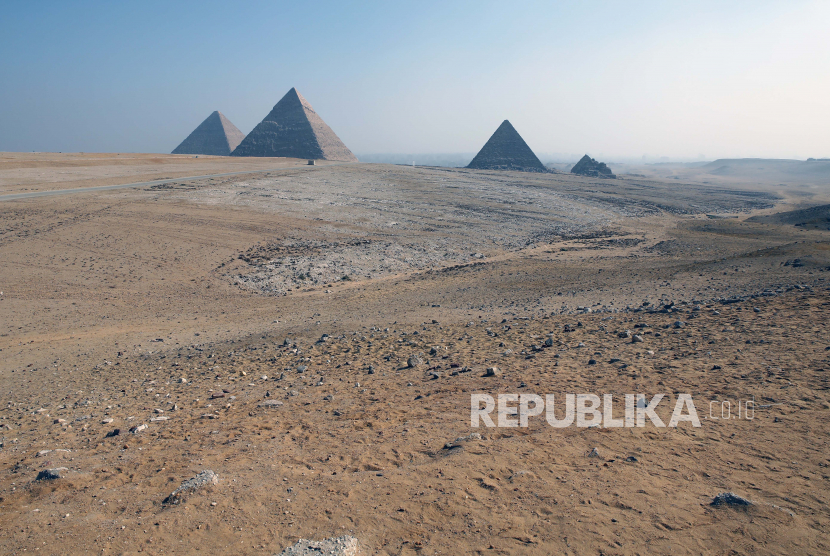REPUBLICA.CO.ID, JAKARTA— There is still a debate today over whether Pharaoh is one person and a name or just a title of king in Egypt.
Pharaoh's name appears in the Quran 74 times in 27 different letters. The first opinion came from an Egyptian philosopher Mustafa Mahmud. He discussed not only the Pharaoh but also the beliefs of Egypt.
He argues that during this time Pharaoh was known as the ruler of Egypt which was a disgrace for despite having an advanced civilization but torturing the faithful. Mahmud, however, denied that the ruler came from Egypt.
Because he believed that the rulers of Egypt and their people adhered to monotheists. He also denies Moses was sent to straighten out the Pharaohs of Egypt, but rather to the tyrant rulers of the Hyksos.
Mustafa Mahmud responded to the claim that Pharaoh Moses was Ramses II. Based on the science of science and the belief that Pharaoh in the time of Moses was one of the Hyksos kings, not the kings of Egypt.
Mustafa Mahmud points out that Moses' message was not to invite the Egyptians to tawhid, as they were monotheists, but rather that he invited the heathen Hyksos to worship God and his affair with the sixth Pharaoh who expelled them, was idolatrous. While the finding that the history of the ancient Egyptians had many gods is not true. Because precisely in the book of Al-Mauta Al-Mutasharrif fi al-Kaun, their god is only one.
Another opinion of Zahi Hawass said in his article published in Sharq Awsat media in June 2016 in response to research on whether Pharaoh was a science or a degree. The goal of the researchers in this direction was to confirm that the Pharaohs were not Egyptians, but rather from the Hyksos.
This study confirms that there is a list of names of Hyksos kings, but none of them are named Pharaoh. Zahi Hawass points out that the derivation of the word Pharaoh has been widely studied and is said to have come from the word “baraa” which means a large house or palace, later changed to “faro” in Hebrew, then the Arabic noun was added with the letter Nun. Emphasizing that this title has existed since the old kingdom.
Mustafa Waziri justified in his research on Pharaohs in the time of Moses that it was not a title but a person's name and asserted that it was not associated with Egypt.
Archaeologist Ahmed Nururddin said in August 2016, according to Sharq Awsat News Agency, that there is a lot of evidence in the Quran that suggests that the word “Pharaoh” in ancient Egyptian civilization was the name of a specific person and not a title.
To demonstrate this, Nuruddin mentions that the word “Baraa” or “Pharaoh” is found in royal hieroglyphs in many temples. This justifies that his name is only what is written in hieroglyphs in ancient Egyptian writing.
Nuruddin asserts that the reason for the belief that the title of Pharaoh was the ruler of ancient Egypt was because of the custom of giving titles to kings of the ancient world, such as the title “kosra” for Persian kings. Although basically it was the name of one of their kings.


